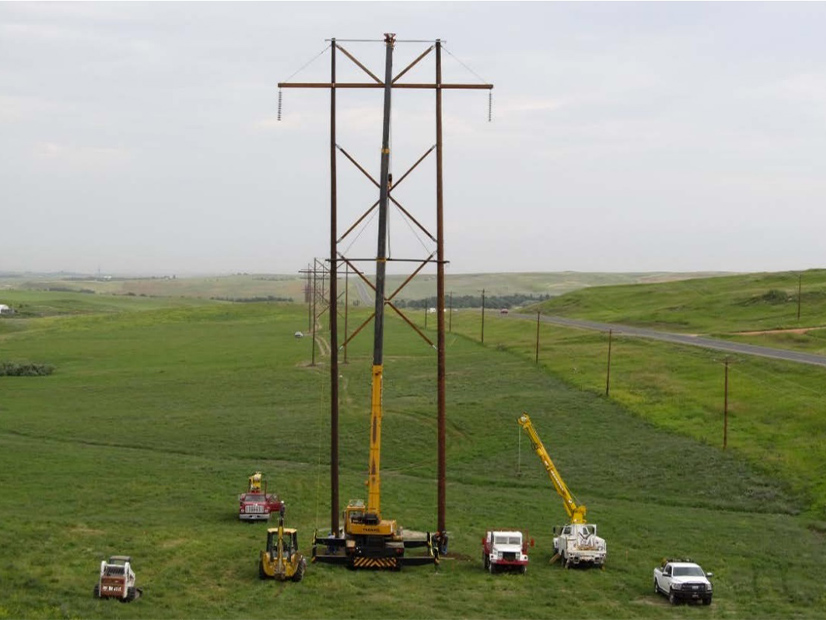MISO has registered a separate complaint with FERC to retract market-to-market coordination with SPP on a contentious flowgate persistently taxed by a North Dakota cryptocurrency mining operation.
MISO said it wants refunds for its members and for FERC to end what it calls “improper M2M coordination activities” on the 230-kV Charlie Creek flowgate because it cannot offer meaningful congestion relief (EL24-85). The grid operator sought fast-tracked treatment and said its complaint should dovetail with an initial complaint submitted by Montana-Dakota Utilities Co. (See Crypto Load on MISO-SPP M2M Constraint Draws Complaint from Montana-Dakota Utilities.)
MISO repeated concerns made in the original complaint that the flowgate, which serves the 200-MW Atlas Power Data Center, has cost its members more than $38 million in “unnecessary, unjust and unreasonable M2M charges.” (See SPP, MISO Clash over Crypto-strained M2M Flowgate.)
MISO said SPP is violating their M2M coordination procedures under the RTOs’ joint operating agreement by refusing to lift the line’s M2M status. It said the flowgate is being used to “address local congestion issues in a load pocket located in [SPP] … where MISO has no regional flows and is unable to relieve congestion due to the lack of generation.” MISO asked for refunds for M2M charges associated with the flowgate from April 1, 2023, onward.
Additionally, MISO asked FERC to pronounce it and SPP’s current M2M coordination termination process unreasonable and discriminatory because MISO doesn’t have recourse to revoke congestion management even when it’s unhelpful, leaving its members on the hook for millions. MISO also said it didn’t have faith that it and SPP could revise the provisions in their interregional coordination process without FERC guidance.
“This finding will ensure that the dispute that led to this complaint does not occur again and is promptly remedied, as both MISO and SPP appear to agree that changes are needed while disagreeing on how those changes should be implemented. MISO will work with SPP to develop appropriate revisions, but MISO does not believe that even a mutually collaborative effort, without the benefit of such a threshold FERC finding, providing a firm timeline and prescribed compliance process, would be effective or expeditious,” MISO wrote.
MISO said M2M coordination on Charlie Creek should have ended as soon as the Atlas Power Data Center began operating early last year.
MISO said neither it nor SPP have adequate generation to relieve the constraints “exacerbated” by the cryptocurrency facility situated in the Williston Load Pocket (WLP). It also said it and SPP have no “economic” M2M coordination available to them, with SPP acknowledging in a 2021 transmission planning report that the “root” of the issue lies in “the lack of transmission to accommodate the level of transfers required to serve the forecasted load in the future, contributing to a weak system unable to maintain acceptable voltage levels.”
“In fact, congestion in the WLP stems primarily from a local reliability issue and the best solution is to build additional transmission,” MISO argued, saying the “obvious ineffectiveness” of the M2M coordination should be clear to FERC.
SPP has asked FERC to deny Montana-Dakota Utilities’ complaint, maintaining that the M2M activation and congestion coordination is permitted according to the joint operating agreement. It has said it and MISO are working through the disagreement, though MISO has said negotiations are at an impasse, which effectively works as SPP blocking any hope for an M2M cancellation.




